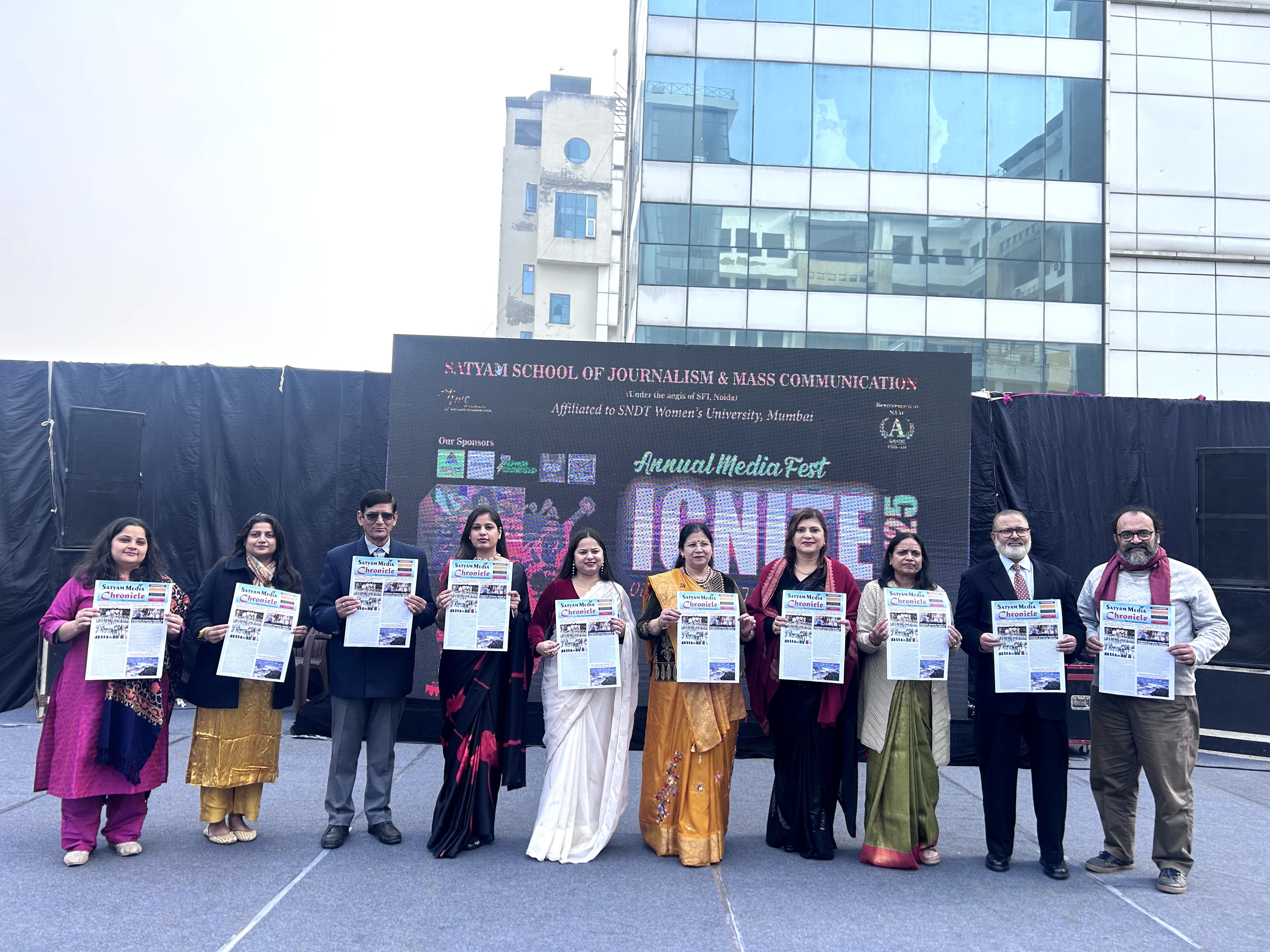
Satyam School of Journalism & Mass Communication Hosts Grand Annual Media Fest “IGNITE 2K25”


New Delhi, Dec 20: Ashoka University, India’s premier institution for interdisciplinary higher education and research, hosted the three-day ResComm 2025 Conclave at its campus, with a focus on strengthening interdisciplinary research communication across the sciences and humanities. The conclave opened with a high-profile inaugural day that brought together leading academics, policy advisors, researchers, and communication specialists to engage with the evolving demands of research dissemination, integrity, and public engagement.
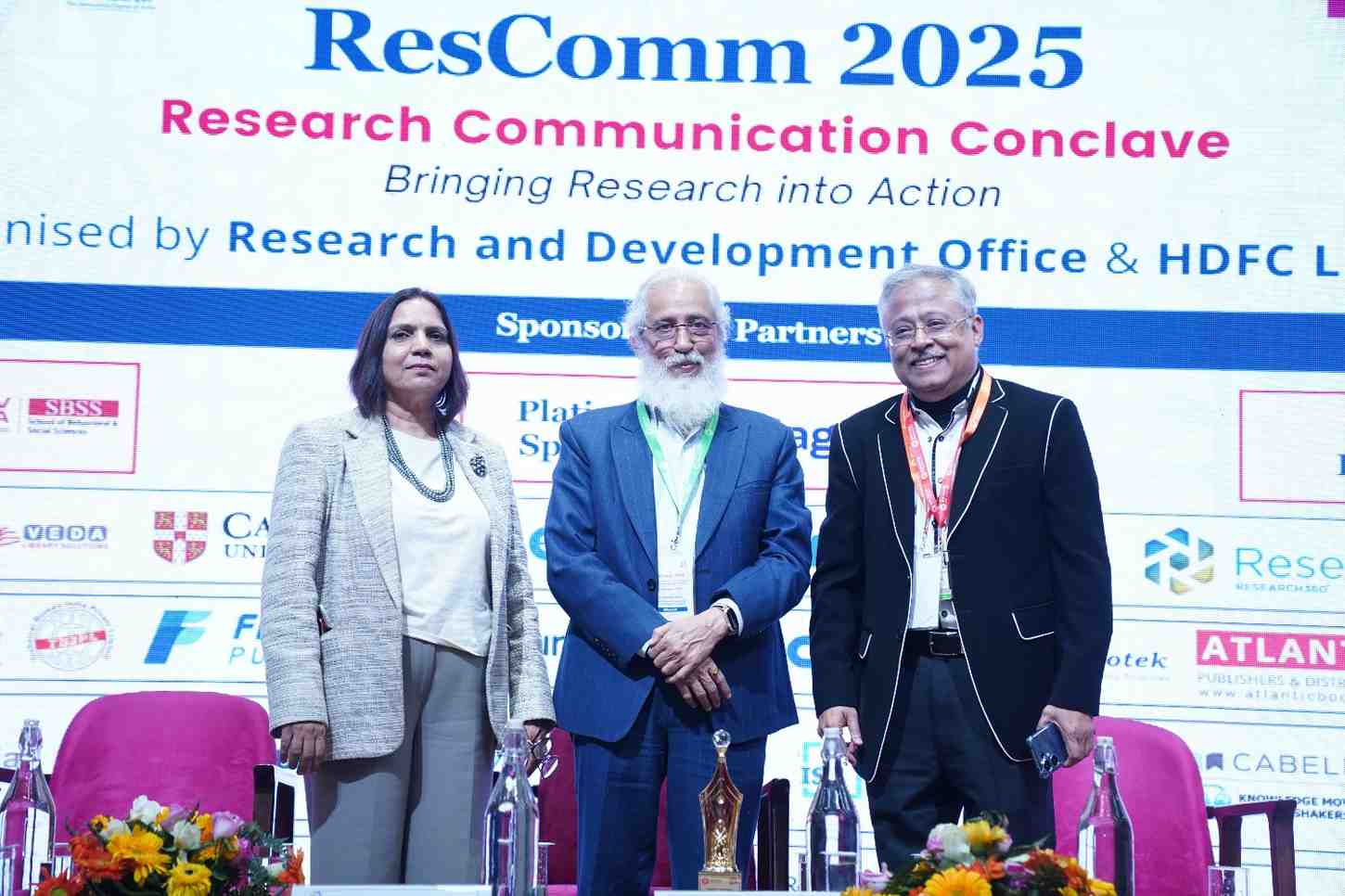
The first day saw participation from senior government, policy, and research stakeholders, including Prof. (Dr) Anil Sahasrabudhe, Chairman, Executive Committee of NAAC; and Chairman, National Educational Technology Forum and National Board of Accreditation Dr Rajnikant Srivastava, Chair (Disease Elimination), ICMR; and Prof. (Dr) K. Vijay Raghavan, Chair, Science Advisory Council, Ashoka University, among others.
The conclave commenced with an opening address from Professor Gautam Menon, Dean, Research and featured key sessions on research communication and public engagement, including a plenary chaired by Dr Rajnikant Srivastava, Chair (Disease Elimination), ICMR, examining the challenges and opportunities in communicating health and biomedical research.
In a talk focused on healthcare communication, Dr Anurag Agrawal, Dean of BioSciences and Health Research at Trivedi School of Biosciences and Head of the Koita Center for Digital Health, Ashoka University emphasised upon the importance of learning to communicate research effectively to diverse audiences and said, “In healthcare, the public in particular is not just looking for information but also for solutions, and effective healthcare research and communication can help bridge that gap.”
Delivering the Distinguished Lecture, Prof. (Dr) Anil Sahasrabudhe, Chairman, Executive Committee, NAAC, spoke about India’s rapid rise in research output and the need to now focus on quality and impact. “Over the last 10 years, India has come a long way. In terms of the number of research publications, we are already number three in the world,” he said.
Prof. Sahasrabudhe underlined that the country has moved from seventh or eighth place to third in research quantity, but he cautioned that quality remains a concern. “Quantity-wise, we have leapfrogged, but in terms of quality, we have a long way to go,” he said, calling for greater emphasis on high-impact research. He also noted that while India’s patent ecosystem has grown rapidly, much of the work remains at early technology readiness levels. To convert research into usable technologies, he emphasised closer collaboration between universities and industry.
Professor Somak Raychaudhury, Vice-Chancellor, Ashoka University, reaffirmed the University’s commitment to nurturing a culture of rigorous research and accessible communication. He shared anecdotes from his on-ground experience of grassroot level communication. He said, “Our ambition at Ashoka is not just to be a leading Research University but to actually contribute actively to the world through global communication, partnering and collaboration.”
Prof. K. Vijay Raghavan, Chair, Science Advisory Council, Ashoka University remarked “We should invest in research that is curiosity-driven, sparks excitement, and challenges the human mind ensuring that the outcomes of such work are accessible to everyone.”
There were sessions on the role of AI and innovation in translating research for policy and public audiences, interactive workshops on Grant Writing, Research Integrity, and Enhancing Research Communication through visuals.
The conclave also witnessed the launch of Productive Failure, authored by Prof. (Dr) Manu Kapur, Professor of Learning Sciences and Higher Education at ETH Zurich, Switzerland, and published by Wiley International. The proceedings were led by Dr Shantanu Ganguly, Director of Library at Ashoka University. The book explores learning through struggle and reflection, aligning closely with the conclave’s emphasis on experimentation and effective communication.
The conclave concluded successfully, advancing the vision of ethical, interdisciplinary, and impactful research communication.
For many higher education students in India’s small towns, completing a degree does not always translate into career clarity. Limited exposure to organised career pathways, lack of mentorship, and financial constraints often leave students uncertain about their next steps, particularly those from unorganised and underserved backgrounds. As a result, the demand for structured career guidance and skill development support is steadily growing across Tier 2, Tier 3, and Tier 4 cities.

In response, career-focused initiatives are increasingly targeting higher education students with programmes that combine counselling, competitive exam preparation, and skill-based learning. These efforts aim to bridge the gap between academic education and employability by helping students align their interests and strengths with real-world career opportunities.
Scholarship programmes introduced across smaller towns are also playing a significant role in addressing affordability challenges. By easing financial pressure, such initiatives allow meritorious students to access quality guidance and training that might otherwise remain out of reach. In states like Punjab and Himachal Pradesh, collaborations with government bodies have further expanded access, creating pathways for students from unorganised sectors to transition into structured and sustainable careers.
Highlighting the importance of early and informed career decision-making, Neeraj Kansal, Founder and CEO of Crack Academy, said,
“Students from smaller towns often have the talent and ambition, but not the exposure or direction needed to make confident career choices. By providing counselling, skill development, and financial support, we can help them move towards stable and rewarding career paths.”
Beyond financial assistance, regular workshops, mentorship sessions, and accessible learning models are helping first-generation learners and aspiring professionals gain confidence and awareness of emerging career options. Such exposure is proving critical in helping students navigate new-age roles and evolving industry demands.
As these initiatives continue to expand their reach, they are quietly reshaping how higher education students in India’s smaller towns approach career planning—turning uncertainty into clarity and aspiration into achievable progress.
Visakhapatnam, Dec 19:Adani Gangavaram Port, in collaboration with Adani Foundation, inaugurated the Adani Skill Development Centre at Gangavaram as part of its Corporate Social Responsibility initiatives. The Skill Development Centre is designed to provide structured training programs and practical exposure to help youth and women in local communities gain industry-relevant skills and improve livelihood opportunities.

The inauguration ceremony was graced by senior leadership from Adani Gangavaram Port Limited and Adani Foundation, along with village leaders, community representatives, trainers, and enthusiastic students. Their presence reaffirmed the Adani Group’s strong commitment towards inclusive growth and community development.
The Adani Skill Development Centre will offer structured training, practical exposure, and continuous support to trainees, aligning with the Skill India Mission and Adani Group’s vision of nation-building. The centre focuses on creating employable talent while fostering inclusive growth and sustainable development in the region.
Speaking on the occasion Adani Gangavaram Port Management said,that the Adani Skill Development Centre is a catalyst for empowering women and youth by providing industry-relevant skills that build confidence, enable financial independence and support sustainable livelihoods. Adani Foundation’s commitment to skill training initiatives that foster empowerment and long-term socio-economic growth. We thank the local community and educational partners for their ongoing trust and support. This initiative is one of the many ways we continue to strengthen our bond with the local community and work towards inclusive development.
New Delhi, Dec 19: As 2025 wraps up, College Vidya, India’s trusted platform for navigating, comparing, and selecting UGC-approved online and distance education programs has released its Year-End Online Education Trends 2025, mapping what Indians chose to study this year, where demand is coming from, and which specialisations are shaping career ambitions at scale.
Key Highlights
MBA leads India’s online degree market with 42.52% of all enrollments; the single largest share across programs.
Tech degrees form 28%+ of India’s online learner base, led by BCA (16.67%) and MCA (11.27%).
BBA is the fastest-growing UG management degree, rising to 43.87% YoY growth in 2025.
Doctorate in Business Administration is the biggest breakout trend of 2025, recording an 86.82% YoY jump (despite a smaller market share of 1.86%).
Delhi leads India’s online learning map with 18.63% contribution, followed by Uttar Pradesh (13.14%) and Bihar (10.49%) highlighting how strongly Tier-2/3 India is shaping demand.
India is choosing degrees that make them employable
The year-end data shows a clear pattern: learners are increasingly choosing degrees aligned with high-demand domains, particularly across technology and business, reflecting how academic choices are evolving with market relevance.
In BCA, the largest specialisation clusters were Cloud Computing & Cybersecurity (30.70%) and Data Analytics (30.18%), followed by Computer Science & IT (15.61%) and ML & AI (12.21%); signalling that students are optimising for real-world hiring pipelines across security, data, and AI-led roles.
In MCA, demand is concentrated in Computer Science & IT (42.16%), ML & AI (25.22%), and Cloud Computing (17.72%), highlighting strong interest in advanced technology degrees.
In BBA, India’s business learners are not picking generic management anymore – Financial Management (40.16%) dominates, with strong interest in Data Analytics (14.44%), Business Analytics (8.66%), Digital Marketing (7.61%), and Project Management (6.82%).
Even in BA, preferences reflect career utility: English accounts for 54.43%, followed by Hindi (18.83%), with meaningful demand for Psychology (6.97%) and Political Science (6.40%).
Learner demand is expanding across states
Year-end trends show that demand for online degrees is spread across multiple regions, with strong participation from both established and emerging education markets.
Delhi contributes 18.63% of enrollments; the largest single hub.
Uttar Pradesh (13.14%) and Bihar (10.49%) together contribute nearly a quarter of all enrollments, reinforcing how strongly Tier-2 and Tier-3 India is driving adoption.
Maharashtra (9.17%) and West Bengal (5.66%) strengthen West and East as fast-growing learner markets.
DBA emerges as the “mid-career power move”
The sharpest spike in the dataset is Doctorate in Business Administration (DBA); growing 86.82% YoY in 2025. College Vidya’s year-end view indicates that working professionals are increasingly choosing short-duration, management-focused doctorates as a credential for leadership acceleration and career leverage.
Rohit Gupta, COO, College Vidya, said:
“2025 showed us that India is no longer chasing degrees for their names, but for their outcomes. The rise of MBA, the momentum in BCA and MCA, and the unexpected jump in DBA all point to a workforce that is thinking with precision: What will this degree do for my career? With online education now fully mainstream, learners across India, especially in Tier-2 and Tier-3 regions are making faster, and far more informed choices than ever before.”
Andhra Pradesh,Dec 18:-Birla Open Minds recently took a heartfelt step toward nurturing young minds by organising a Book Donation Drive at Devireddy Sarada Reddy High School in Allur Mandal, Nellore District, Andhra Pradesh. The initiative reflected the institution’s strong belief that education goes beyond classrooms and that access to books can open doors to lifelong learning.
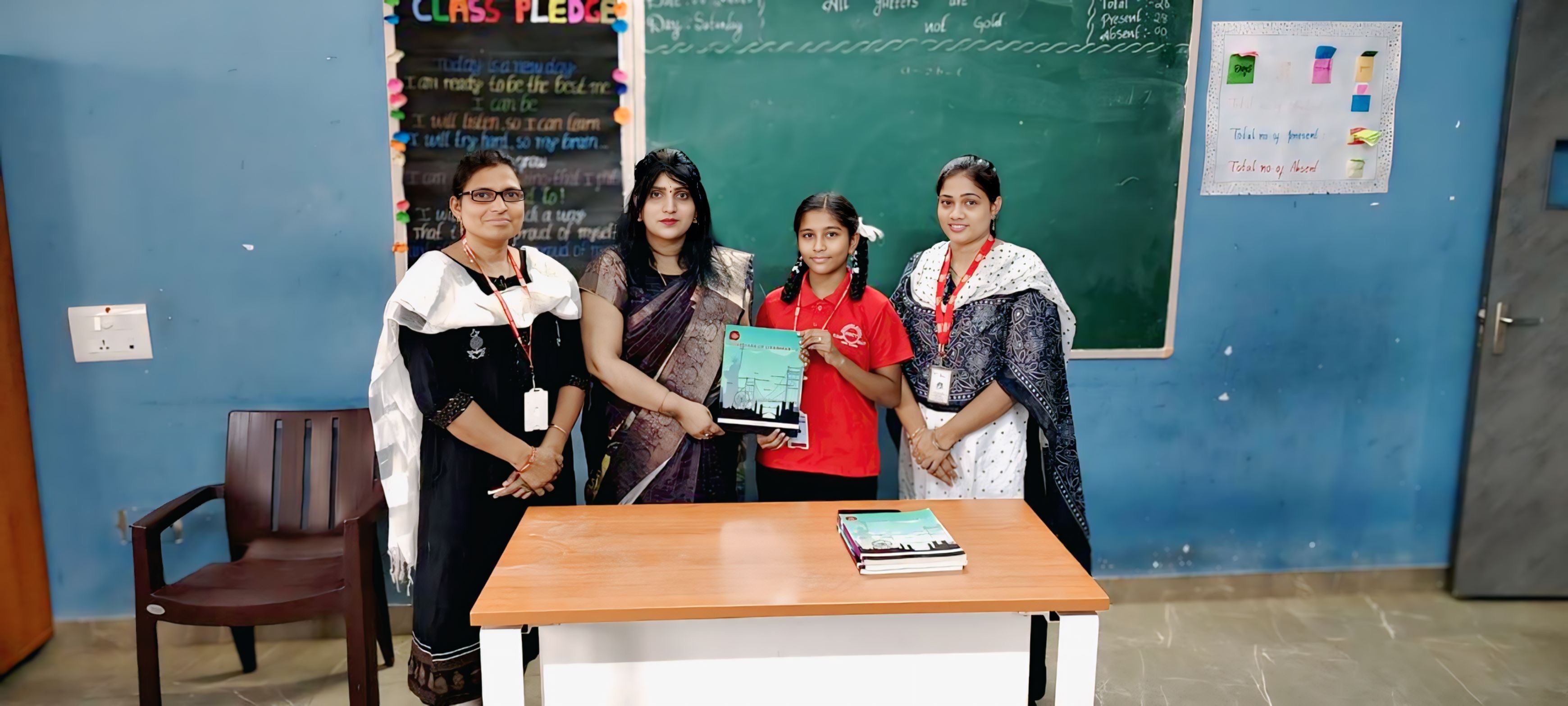
Devireddy Sarada Reddy High School is a charitable institution established in memory of Ms Dodla Sharmila Reddy’s mother and currently supports the education of over 310 students from the local community. The book donation drive was conducted in collaboration with DSR Education and focused on students from Grades 5 to 10, aiming to encourage reading habits and ignite curiosity at a formative age.
As part of the initiative, students received a carefully selected set of learning resources, including English Language & Arts practice books, Hindi practice books, Soul Science books, and English Grammar books. These books were chosen to support both academic learning and personal development, helping students build strong language skills while also encouraging self-awareness and critical thinking.
Sharing his thoughts on the initiative, Mr Yatharth Gautam, Director & COO, Birla Open Minds, said,
“Education begins with curiosity and grows with access. Books have the power to shape thinking, build confidence, and inspire children to dream beyond their surroundings. At Birla Open Minds, we believe it is our responsibility to ensure that every child has the opportunity to learn and grow, regardless of circumstances. Through this initiative, we hope to nurture a love for reading and remind children that their potential is limitless.”
Ms Dodla Sharmila Reddy, DSR Education, added,
“This initiative is very close to my heart, as it continues my mother’s vision of empowering children through education. She believed that true education builds not just knowledge, but character and compassion. Seeing these children receive books with excitement and curiosity reminds me why this journey matters. Our hope is that these books will inspire them to explore new ideas, express themselves confidently, and believe in their dreams.”
As an alliance partner of Birla Open Minds, DSR Education shares the same values of compassion, curiosity, and community contribution. Together, they continue to work toward creating meaningful learning experiences that support not only academic growth but also emotional well-being.
Through initiatives like this book donation drive, Birla Open Minds and its partner institutions reaffirm their commitment to enriching young lives, encouraging society to come together in support of education and the power of knowledge.
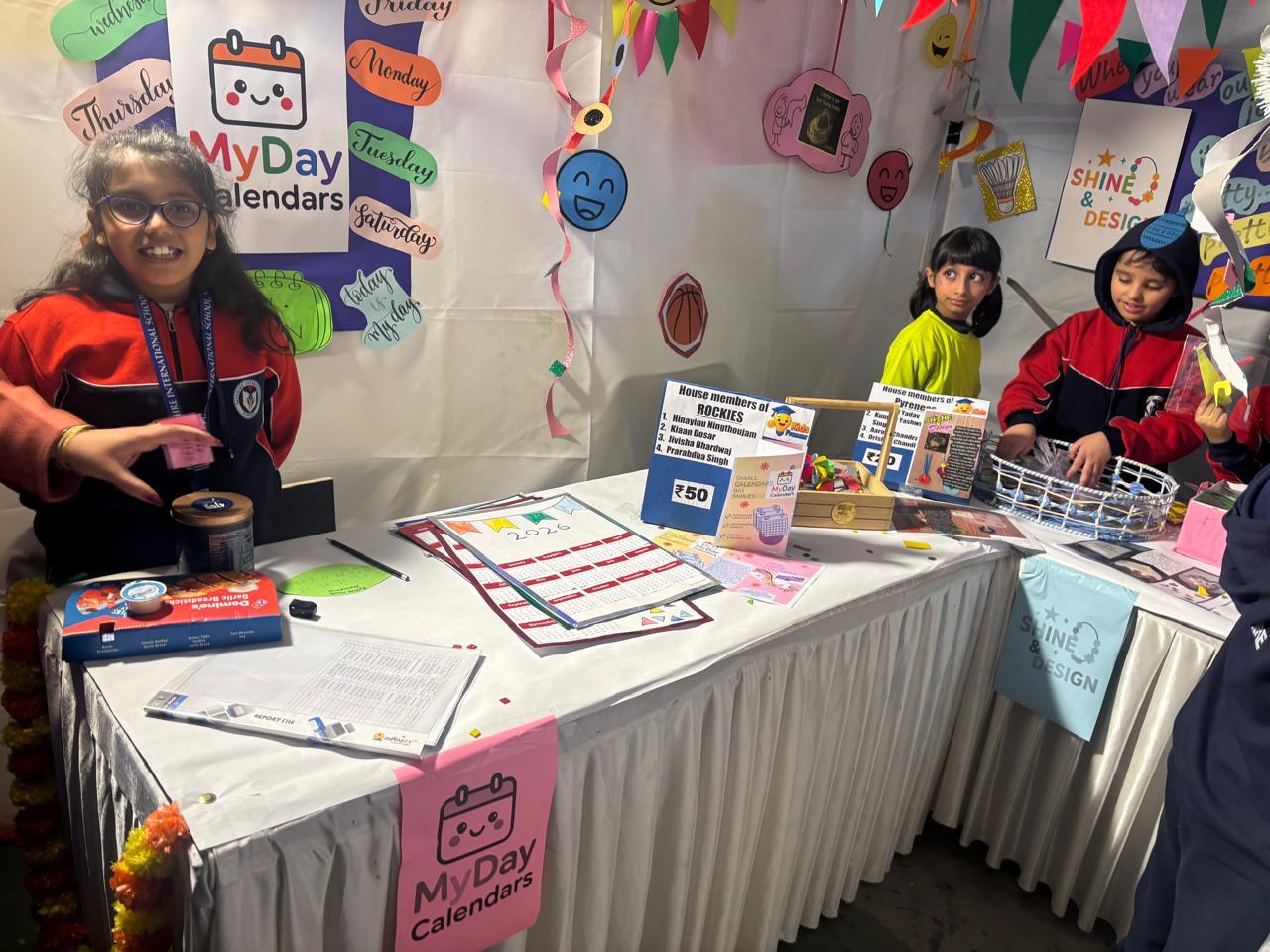
Chitradurga, Karnataka Dec 18:- Empowering students with skills required to ace their examinations, Vedanta Sesa Goa Iron Ore Karnataka has launched the ‘Master Class to Achieve 100%’, at Shri. Nuthan High School, Siddapura. The initiative, under Sesa Goa’s Project ‘Vriddhi’ would empower 180 students from four schools Shri. Anjaneya Swamy High School, Kadleguddu, Shri. Anjaneya Swamy High School, Manangi, Dr. B R Ambedkar High School & Shri. Nuthan High School, Siddapura, through ‘Special Classes’ conducted on all weekends starting on 13th December 2025, for two months.
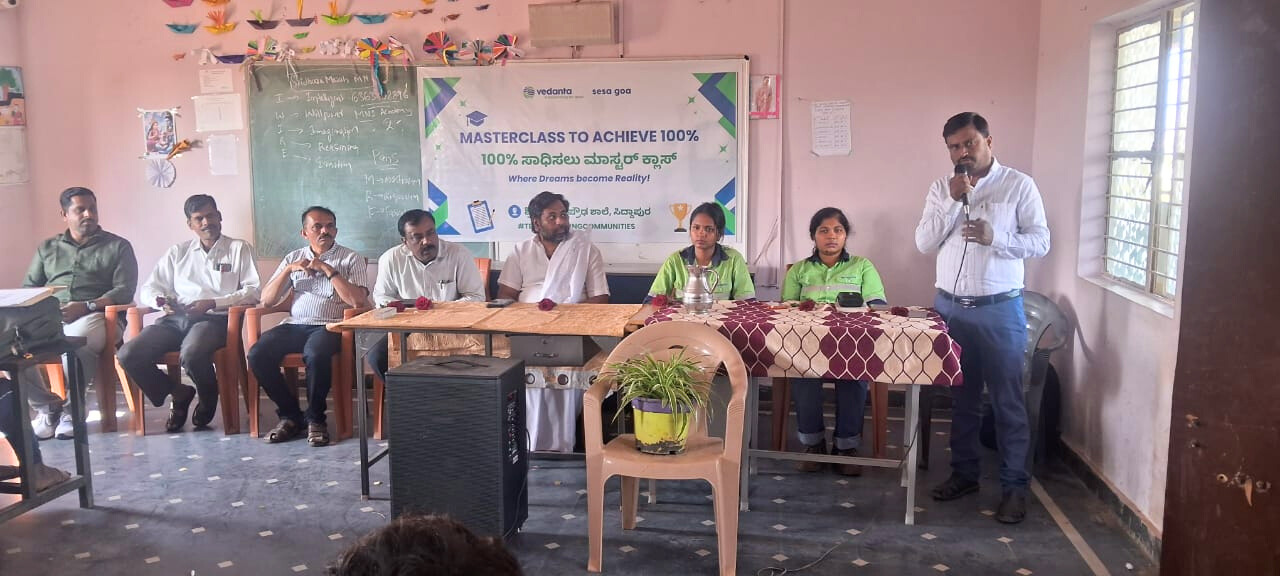
As part of the initiative Vedanta IOK is providing support through accomplished teachers who will be augmenting the preparations of the SSLC students through special classes.Students will also be mentored to overcome gaps in writing technique, time management, and tips on addressing questions as per board pattern. The event witnessed the presence of Raghavendra G., Chairman, Sri. Nuthan Education & Rural Development Society, along with Keerthi Kumar SB Head Master, Manangi HS, Dr. Mahesh, Principal, Shri. Anjaneya Swamy High School, along with school faculty, students and Vedanta executives.
Marking the launch of the initiative, Shrishaila Gouda, CEO, Vedanta Iron Ore Karnataka said;
“We are proud to partner the students of Chitradurga through the Master Class initiative under Project ‘Vriddhi’, we will be providing special classes to over 180 students and are inspired to help them achieve 100% pass percentage in the upcoming SSLC examinations.”
Dr. Mahesh, Principal, Shri. Anjaneya Swamy High School, Kadleguddu, said;
“The ‘Master Class to Achieve 100%’ initiative will prove extremely beneficial for increasing the overall pass percentage in the SSLC examinations. Vedanta IOK’s initiative will further enhance the self-confidence in students and contribute to their performance. The company has been regularly supporting students & we appreciate their initiative.”
Aishwarya R, a student of Shri. Anjaneya Swamy High School, Manangi, expressed her thoughts on the initiative, “I hail from a rural household in Chitradurga, and my parents strive very hard to make our ends meet. At times, I find it difficult to understand subjects such as Maths and Science. The special classes by Vedanta IOK are going to be extremely helpful for me.”
Vedanta IOK as part of Project ‘Vriddhi’ has been undertaking several projects aimed at promoting education among rural youth. Its ‘Back to School’ initiative provides study materials to students with 10000+ students benefitting so far , and the company also undertakes upgradation of school infrastructure such as sanitation blocks & science labs, and its Vedanta ‘Utkarsh’ Scholarships have so far benefitted over 500 students in rural Karnataka.

The evening was graced by several renowned faces from the media industry and the education sector, who encouraged students and appreciated the institute’s efforts in nurturing future professionals. The programme featured a series of colourful cultural performances by students, including dance, music, and stage acts, showcasing their confidence and artistic skills.
A key highlight of the event was the award ceremony, where students were honoured with various titles such as Mr. Fresher Gurmukh Singh, Miss Fresher Rishita, Best Performer, and Inspirational Senior, recognising their talent, personality, and overall performance.
Welcoming the dignitaries and students, Mr. Syed Masood, Managing Director, Heritage Institute of Management and Communication , said: “The fresher party is not just a celebration, but the beginning of a transformative journey for our students. At HIMCOM, we believe in holistic education where academics go hand in hand with confidence-building, creativity, and real-world exposure. We are proud to see our students express themselves so brilliantly today.”
The event concluded on a high note, leaving students motivated and inspired as they embark on a new academic journey at Heritage Institute of Management and Communication.
Dec 18:-The Indian Institute of Technology Mandi successfully hosted the Applied Behavioural Sciences and Decision Making Conference a prestigious two-day event that brought together leading researchers, academicians, and practitioners from India and across the globe. The conference focused on cutting-edge research in behavioural science, cognitive modelling, and decision-making.

Organised by Prof. Varun Dutt and Prof. Sumitava Mukherjee ABSDM 2025 served as a dynamic interdisciplinary platform to explore the cognitive, social, and technological dimensions of decision processes. The discussions highlighted the growing relevance of behavioural insights in addressing real-world challenges such as climate change, public policy, and emerging technologies. The conference was supported by the Tata Trusts Project (PI: Prof. K. V. Uday), whose sponsorship played a key role in its successful execution.
The conference was inaugurated by Prof. Laxmidhar Behera, Director, IIT Mandi, and featured a keynote address by Prof. Joachim Meyer, Celia and Marcos Maus Professor of Data Sciences at Tel Aviv University. The inaugural session also included remarks by Prof. Arnav Bhavsar, Chair of the Indian Knowledge System and Mental Health Applications (IKSMHA) Centre; Prof. Shubhajit Roy Chowdhury, Chair of the Centre for Human-Computer Interaction; and Prof. K. V. Uday, Chair of the Centre for Climate Change and Disaster Management at IIT Mandi.
In his address, Prof. Laxmidhar Behera emphasised the critical role of behavioural and decision-making research in shaping the future of artificial intelligence, education, and sustainability, underscoring its importance for responsible technological advancement.
Prof. Joachim Meyer’s keynote address offered valuable insights into the interface between humans and decision-support algorithms, particularly in high-stakes domains such as healthcare, defence, and transportation. His empirical findings and models highlighted pathways to improve trust, transparency, and effectiveness in algorithm-assisted decision-making.
ABSDM 2025 featured rich discussions on interdisciplinary and application-driven themes, including behavioural interventions for environmental sustainability, real-world applications of drift diffusion models, and human–AI interaction. More than 30 research papers and poster presentations showcased advances across areas such as climate decision-making, cognitive biases, organisational behaviour, and data-driven policy design. Interactive roundtable and open-house discussions further examined how behavioural science can inform public policy, climate action, and technology design.
The conference concluded with a General Body Meeting, where participants discussed the formation of a Society for Applied Behavioural Science and Decision Making, aimed at strengthening research collaboration, education, outreach, and planning for future editions of the conference.
ABSDM 2025 successfully fostered a multidisciplinary community working at the intersection of psychology, engineering, economics, and data science. With continued support from academic and research institutions, including IIT Mandi and Tata Trusts, the outlook for behavioural science and decision-making research in India remains strong.
As a complementary initiative, IIT Mandi also organised the 7th Winter School on Cognitive Modelling (WSCM 2025) under the aegis of the IKSMHA Centre, supported by grants from the Tata Trusts and the Indian Knowledge Systems (IKS) Division, Ministry of Education. The winter school brought together experts and students from psychology, neuroscience, computer science, and engineering, providing a collaborative platform to explore recent advances in cognitive modelling and brain sciences.